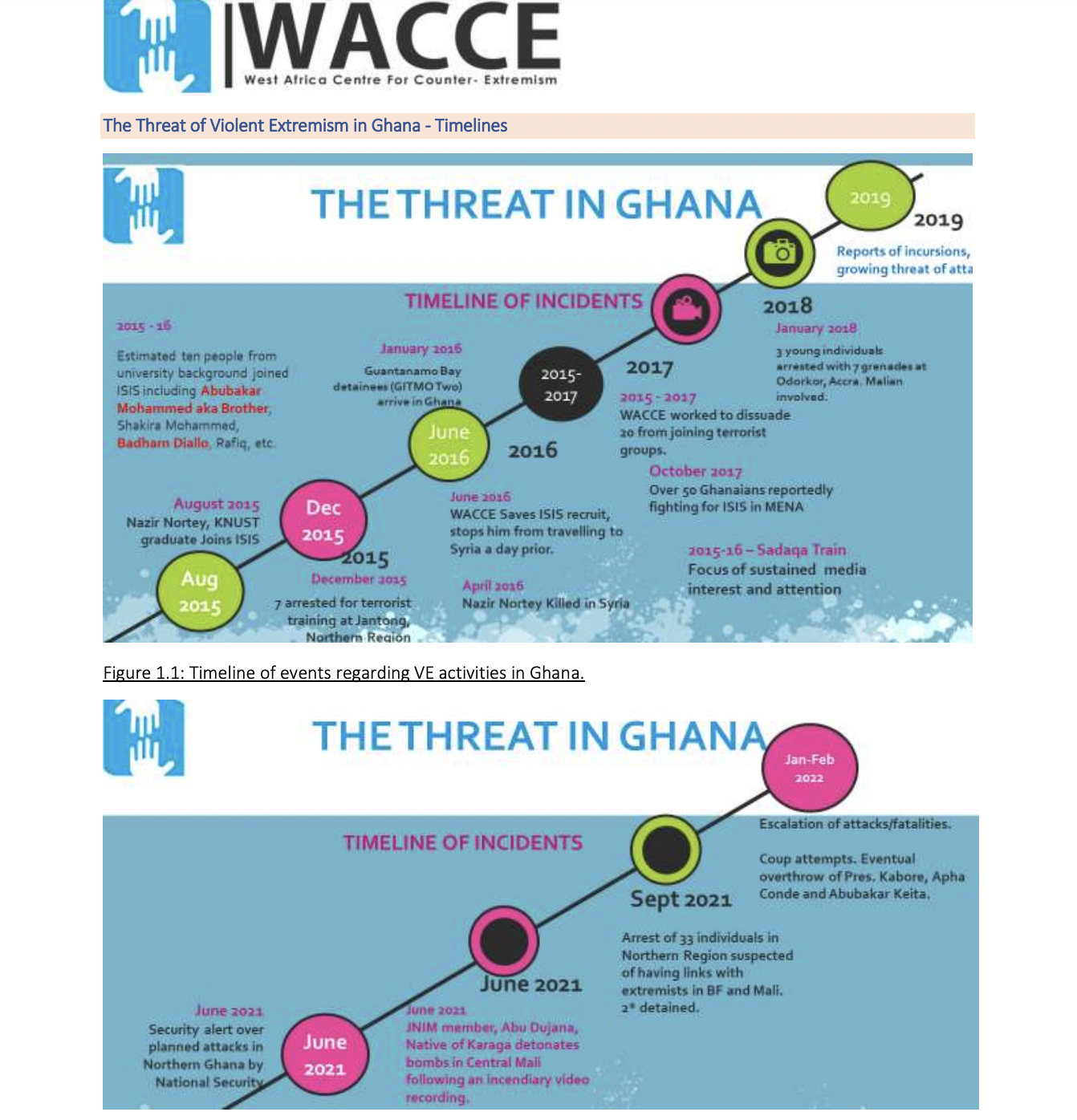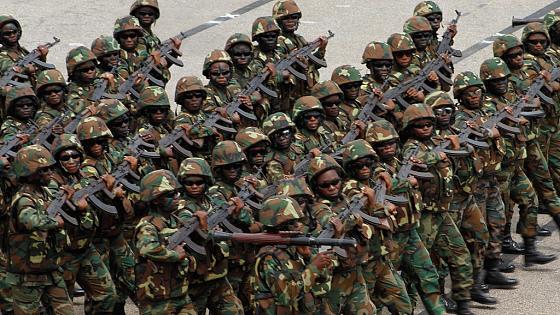The West Africa Centre for Counter-Extremism is warning that Ghana is at high risk of terrorism following pockets of civil, political and social unrest in parts of the West African sub-region.
It says threats of violent extremism are heavily descending towards coastal states from the Sahel regions and that Ghana could not be spared, for that matter, given happenings in its neighbouring countries.
This was contained in a report released by the Centre highlighting Ghana’s exposure to violent extremism while providing the historical and analytical context of these threats.
Factors such as chieftaincy and ethnic disputes, land conflicts, marginalization of vulnerable groups, and high youth unemployment make Ghana very susceptible to threats of terrorism.
“Recent attacks in Benin, Togo and Ivory Coast highlight the determination of the terrorists to expand beyond landlocked Sahelian countries, where the insurgency has devastated thousands of lives and property in the last decade.”
“Ghana has a big number of prolonged unresolved chieftaincy and ethnic conflicts and tensions, particularly in the Northern regions. The inherently high exploitative capacity of extremists imply that these vulnerabilities put Ghana in danger of terrorist exploitation”, the Centre’s report revealed.
Specific areas of concern
Although Ghana is yet to record any terrorist attack on its home soil, the threat is said to be “menacingly and quickly descending from the Sahel towards Coastal States in the last five years.”
“With all its direct neighbours under attacks, Ghana has now been encircled by the threat. These developments are dangerous for Ghana”, the report mentioned.
It cited the unending Bawku chieftaincy conflict; other ethnic tensions in the Northern parts of the country such as Saboba, Chereponi, Gushiegu and Karaga communities, and the unresolved issue regarding the Western Togoland separatists as challenges amplifying the exposure.
Other social and economic difficulties such as unmotororable roads, lack of drinking water, inadequate healthcare and educational facilities, scarcity, and acute increase in food prices were also pointed out.
“These make border regions of Northern Ghana vulnerable and possible target for extremist exploitation”, West Africa Centre for Counter-Extremism emphasised and its report.
The determination of social activists such as the #FixTheCountry campaigners to exploit the security, economic and governance challenges adds to the tall list of drivers compounding youth uprising.

Way forward
Ghana is thus under serious pressure to take action against the rising acts of insurgency that could derail peace, stability and economic development of the sub-region.
These have to be tackled head-on to avert any socio-politico-economic instability.
Government is being urged to take note of the widespread nature of the threat to Ghana and urgently take steps to escalate national commitment to preventing the threat from spilling into the country.
“It requires coastal states to work together to deepen intelligence gathering, inter-agency coordination and intelligence sharing to ensure immediacy of action to stop the threat from advancing further South. But the overall effectiveness of Ghana’s response will be determined by the State’s willingness to recognise that the battle against terrorism and the drivers that underpin it cannot be won on the battlefield alone.”
“It will be won in the local community in dealing with the drivers of radicalization and building resilience against the threat. It will be won by effectively addressing grievances, mobilizing local community support and goodwill to build the social and economic infrastructure that is required to build resilience against extremism”, the report advised.


